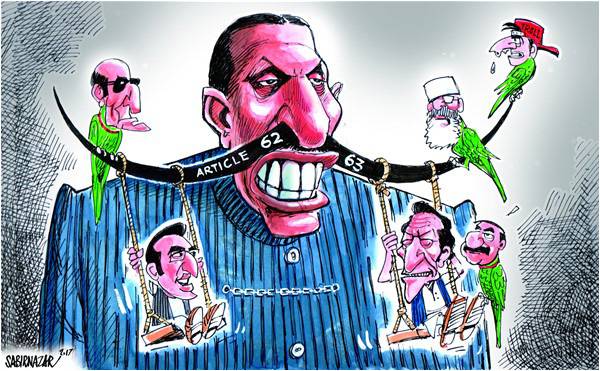

Sadiq aur Ameen
Sir,
The companions of the Holy Prophet (PBUH) gave him the title of Sadiq and Ameen. It is an element of faith for Muslims that no person, other than holy Prophets (RA) before him, would qualify to fulfill requirements worthy of this title.
What Pakistan requires are leaders with integrity, commitment and the political vision of Quaid-e-Azam Mohammad Ali Jinnah, not hypocrites, nor men or women with insatiable greed for assets. It is the financial integrity of an individual, his or her ability to make appointments and decisions only on merit that matters. They should believe in the rule of law, the supremacy of the Constitution and not be slave to addictions of any kind. They should have no conflicts of interest and have an undivided loyalty to Pakistan. This is what is required for a person to hold constitutional offices of importance such as prime minister, chief minister, top bureaucrats, heads of security services etc.
The irony is that a military dictator, who inserted this clause in our Constitution, had sworn an oath that he would protect and honor the Constitution, a pledge which he violated. General Zia ul Haq’s conduct while posted to Jordan, in accordance with the Code of Conduct of his institution, merited the penalty of court martial, which unfortunately was not given and this country had to pay a heavy price. During his tyrannical rule, Pakistan’s territorial sovereignty was compromised, when he plunged this country into a needless proxy war, giving sanctuary to thousands of alien extremists and fundamentalists, and to this day hundreds of thousands of sons and daughters of this country have lost their lives and millions have been displaced because of this policy. Pakistan continues to bleed from Zia’s legacy which nurtured the evil of sectarianism, ethnic hatred, corruption, hypocrisy and a criminal economy, which has brought ignominy and endless misery for us as a nation at home and abroad.
It is time to undo and amend Articles 62 and 63 and put in place amendments which can cleanse this country of corrupt-to-the core individuals through transparent scrutiny, irrespective of their faith, belief, creed or colour.
Malik Tariq,
Lahore.
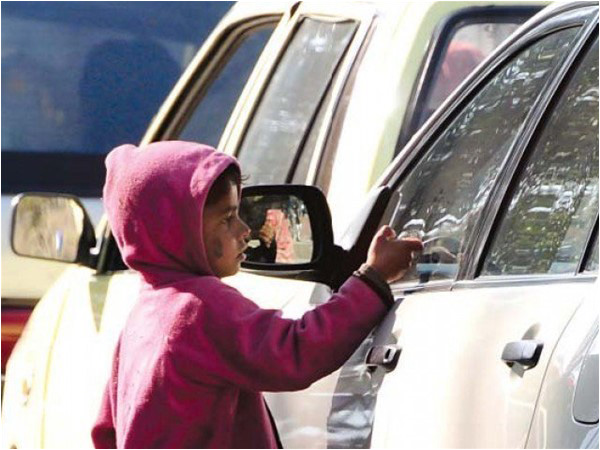
Turbat DC
Sir,
I would like to bring you notice that since the DC has left Turbat, the situation here has become bad again. No shopkeeper, doctor, teacher obeys the law and none of the law-enforcers dare to enforce it either. When the DC forced the vendors selling merchandise on the road to leave, everyone stopped doing it. Secondly, he compelled the doctors to report for work on time at Civil Hospital. Thirdly, he made sure teachers came to governmental schools and completed the syllabus at the right time. Most importantly, he tried his utmost to end cheating in the board exams and I am witness to that. I request the law enforcers to do something soon about this.
Muradbibi Tariq Ali,
Turbat.
Child kidnapping
Sir,
In Pakistan, kidnapping is a common crime, which has always been neglected and has not been given the importance it deserves. Because of continuous negligence, kidnappers have found it easy to kidnap children of almost any age and in return, they ask for a handsome amount of money.
Last year in Pakistan, about 35,000 cases of child kidnapping were reported and they are said to be going up this year as well. The reason is not only a lack of security, it is a also lack of attention paid by parents. Parents send their children to the street, to the shops and parks to play unaccompanied or unsupervised.
What is worse is that the kidnappings often end in homicide. This “kill and dump” phenomenon means that many bodies have been found in garbage dumps and grounds. In such cases no ransom is demanded. The child disappears and their body is found a few hours later. Children who are fortunate to have been rescued, are scarred for life. They and their families need psychological counselling to cope.
We should teach children how to protect themselves from strangers. Schools and colleges should give self-defense education so children at least have an idea of how to keep themselves safe or be alert to dangerous environments or situations. The media should talk about this issue. The police must realise that many of these crimes are not always reported. They should develop an easy telephone-based communication app to help people get in touch with the authorities quickly.
Kiran Fatima,
Islamabad.
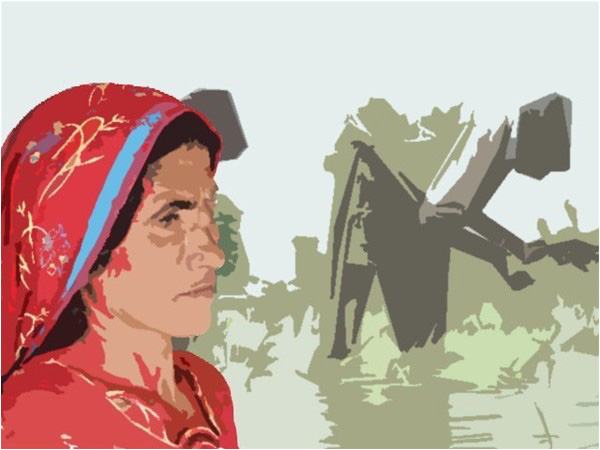
Feudalism in Sindh
Sir,
Sindh, one of the four provinces of Pakistan and a refuge to many and remembered for its agricultural lands, one of the two deserts, culture and brief history, has been a haven for feudal lords. From the time of Raja Dahir its people have suffered. Feudalism has been eradicated from many different countries and states but somehow it still exists strongly in Pakistan, particularly in Sindh, although not in its original sense.
Today we find feudal lords with large landholdings, who take advantage and run their fiefdoms with bonded labour and completely eschew the rule of law. As a result of the ‘loyalty’ of the peasants or haris there’s a strong sovereignty of waderas in all parts of Sindh. They have supremacy over the economic corridors and they also enjoy beneficiary links with the thanas or police stations.
Due to their enormous and extensive power base, no one is able to raise their voice against feudal landlords as they’re scared of being economically crippled and ostracised or worse, punished for speaking out. A feudal lord has the power to destroy generations of one family, which is why these poor people of the land keep quiet and endure their lot in life.
This fear is so strong and peasants are so terrified that they seem to have accepted the domination, which goes totally against basic human rights. Due to this domination, the freedom to vote is suppressed and hurdles are faced in the democratic process in the province. The meaning of word feudal is quite easy to understand: it means keeping the people illiterate, economically dependent, backward, and it means ruling them through the ‘official government machinery’ and consolidating your power over the area. The problem of a lack of education is compounds their miseries. Feudals do not allow schools in their areas or take over existing schools and turn them into barnyards for their livestock. Most of the children of these rural parts of Sindh who are of a school-going age never see the inside of a classroom. And instead, they either work in the fields or learn to do other types of labour in order to support their families.
In the meantime, the feudal landlord’s own children live in Karachi and go to private schools as do the children of the elected representatives of the province such as the chief minister and other politicians. They do not send their children to government schools. Their children have a chance a studying abroad as well. A number of laws need to be enforced to tackle child labour. So many children are working in the agriculture sector, in the carpet industry, as domestic labor, in workshops, brick kilns, factories. Much of this work is hazardous as well.
Education has an inverse relation with feudalism; it is either feudalism or literacy. A feudal cannot tolerate a poor peasant or his children standing up and saying ‘no’ to him. Mass education shall lead to prosperity and helps people tell the difference between right and wrong. This is linked to economic independence. An education will help them invent and innovate in their areas and open up networks of people who can help them.
The poverty levels in rural Sindh are alarmingly high. The problem of poverty is compounded by low rainfall, poor quality of water, salinity and a lack of water supply because of the poor quality of the canal irrigation system. Sindh’s economy depends on its agriculture and farming. Sindh lacks opportunities for skilled people. It is a matter of fact that farmers do own even an acre or two of their own land and they have to borrow loans from the feudals to cultivate it. If the crop fails they are in debt to the landlord. Interest is applied. They are stuck in a vicious cycle.
Of course feudalism is not the only reason for the backwardness in the province but it is one of the many ills imposed on its people. Feudalism is a curse and needs to be tackled sincerely.
Sarah Illahi,
Via email.
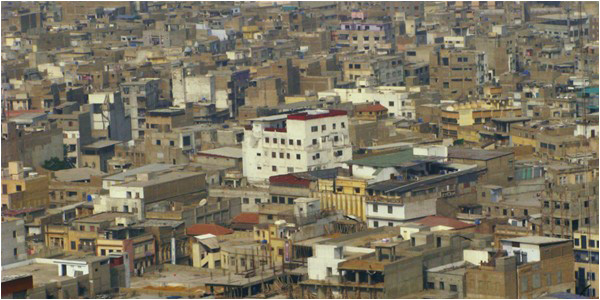
WB project
Sir,
The World Bank and the Sindh government have signed a deal which means we will be taking, if I have understood it correctly, a $86 million loan to fix up three areas: Malir, Saddar and Korangi. I would like to know who in the Sindh government asked if the people of Sindh agreed to taking on such debt? I wonder where my elected representatives are in the Sindh Assembly and what they have been doing to stop this kind of thing happening without at least some kind of public hearings. The work is believed to go on till 2021.
I am amazed that it will focus on fixing up some roads, adding what they call street furniture etc. Is this not something that the Sindh government’s Local Government department should be doing? Well, it has stripped the city government of most of its powers, so one would ostensibly believe that now it is the provincial government’s job to do these things. Do they not have a budget? Why do they need World Bank money?
And how does a project like this address the wider systemic problems in the city government, its funding and its relationship with the provincial government? I understand that the PPP wants to hold the reins of power, after having basically failed to do much elsewhere in the country. I also understand its general unease in sharing power with the MQM. But if you are going to gut out the KMC then at least pick up the spade and do its work. But the PPP and the MQM have both failed Karachi in the last four years or more. If you go around Karachi you see its sliding into anarchy with its infrastructure crumbling. It truly is an orphan city. With the elections around the corner, I wonder what any of these parties have planned because they have nothing to show for themselves in this government. The city is up for grabs this time round.
Panhwar,
Karachi.
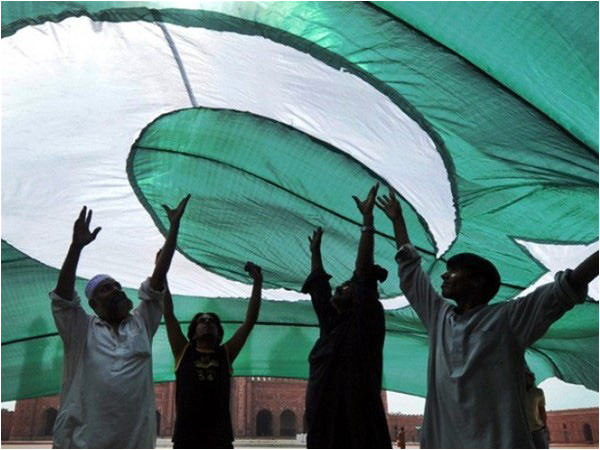
14 Aug fervour
Sir,
As Independence Day comes around, Pakistanis starts a flock of stalls and vendors purchase the flag in different sizes so they can display their loyal fervour. However, the demonstration of patriotism does not end here, as Pakistanis throng the markets in order to get dresses, balloons, firecrackers, badges and all other memorabilia. Moreover, in the big cities, the streets are full of people celebrating. People love to buy patriotic merchandise. People of all ages participate in the celebration of Independence Day to show their love for Pakistan.
Hadia Aziz,
Islamabad.

Languages of slaves
Sir,
With the arrival of the China-Pakistan Economic Corridor, people are feeling that the importance of learning Chinese language has increased in Pakistan. Many parents feel, for example, that it will be a key skill for employment in the future. The Pakistan-China Institute offers a two-month Mandarin course. NUML’s Chinese language department had 13 students when it opened in 1970. By 2017, it has 460 students.
It could have gone the other way, of course, with Pakistani languages becoming more important because the arriving Chinese people, experts, engineers would need to communicate. But instead it is Pakistanis who are rushing to learn Mandarin. The provincial governments, especially in Punjab, have set up Chinese language learning centers and classes are being organized on the smaller scale as well, informally too.
And so, the government has proclaimed that the people of Pakistan should be encouraged to learn Chinese. Of course, no one is arguing that learning a new language is a bad thing. Knowledge is crucial in today’s global economy and learning Chinese is undoubtedly a skill. But there are other considerations to be made.
Throughout history, we have seen that the language of the invader influences the vanquished populace. History is littered with examples and include French, German, English, Arabic, Persian, Spanish. At one point or another, these languages were imposed on defeated countries. This eventually means that the local and regional languages recede into the background or in some cases die out. They are rooted out and repressed in many cases. According to the International Linguistic Community Online, 573 languages have died. Apart from discussion how much languages are dying, I want to point out the issues of Chinese language in Pakistan.
Let me illustrate through the example of British rule in India. In August 1857, Sindhi was declared the official language of Sindh through a special order. It was the language of the Revenue Court and was used for official correspondence. Besides that, it was mandatory for British officers to undergo a six-month course in Sindhi language before taking office in the province.
Similarly, passing the Higher Standard Examination in Balochi language was made compulsory by the Government of India for the Civil and Military services and promotion in Balochistan. In 1894, M Longworth Dames of the Bengal Civil Service introduced a textbook on the Balochi language and it was approved by the government for examination. Ths came in addition to Rao Bahadur Hittu Ram’s book ‘Balochinama’.
An understanding of history makes me wonder why the Punjab government, given the arrival of CPEC, started coaching centers for Chinese language learning. We have not been invaded by the Chinese, nor have we shifted into China. The Chinese are coming to my country for business purposes. It should be mandatory for the Chinese to learn the languages of the country where they are going for business.
My question is: Is it not slavery mentality to give up everything to those who come to you. I am not against learning any language, but why we are undermining our own languages? Isn’t it generally accepted that if I go to any country, I should learn its language, and the same applies for anyone else going to any country especially in the long term? And one would assume that CPEC is a long-term project.
I think the Government of Pakistan should make it mandatory not only for the Chinese but for all those who want to come here to learn at least some parts of any of our languages.
If the British Raj understood the importance of local languages so much so that they made it mandatory for their officers to learn local languages, why can’t the Chinese do this? I believe the Chinese must follow the local laws of Pakistan and learn the national and local languages of the area where they are working.
Qazi Asif,
Via email.

